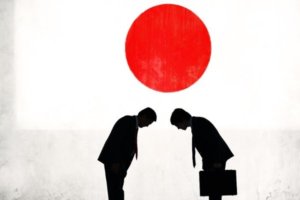International trade has now become unavoidable, but even though business negotiations are happening every day, all businessmen do not know the right way to negotiate with some nations – especially with Japan. Its culture differs widely from Western countries’, particularly when we know that indirect communication is favored by Japanese. When we don’t understand how the system works, meetings and negotiations seem strange, even illogical. So let’s give a look at why businessmen act as they do to better react.
Table of Contents
Feelings & Emotions

Yes, when you negotiate, you are in a professional setting – but Japanese people will avoid doing business with you if they think you are disrespectful, self-centered or if your mindset does not match with their philosophy. In Japan, people don’t show their feelings, others are supposed to guess what they are thinking by ‘reading the air’ (kuuki (w)o yomu 空気を読む). You may think it is in the bag, but later the Japanese team might let you know they are not interested. Besides, you will never receive a direct ‘no’ from a Japanese. You must learn when ‘yes’, ‘it is a bit difficult’ (chotto muzukashii desu), ‘umm’ (sa… and breathing through his/her teeth – it does not have a translation) or ‘it’s a bit…’ (chotto…) means ‘it is impossible’.
The Japanese firm is also looking for a long-lasting business relationship, full of trust and loyalty. If a new deal implies that new employees must be hired, it should not be for a short term. Traditionally, people are employed for life in a company, and even if it is changing, most companies want to give their employees the opportunity to work for them as long as they can. Also, Japanese people make it a point of honor to save others’ faces, especially the seniors’.
It means that conflicts are avoided, they prefer taking a low posture than confronting someone directly. As a matter of fact, a study showed that Japanese students, unlike Western students, did not start a small group discussion directly when the teacher asked them to do so. They first decide who answers the discussion questions when, and in most groups the first of them happened to be one of the female students, the second the other, the third the younger male and the last was the elder. The reason might be that the first who speaks has a higher rate of making mistakes or misunderstanding the question while the last one is quite safe. The probability that the older male – who is the senpai (senior) – loses face is lower, thereby, it was the best choice for the group.
In a similar fashion, if you want to discuss a point with Japanese or if you disagree with what is said, they will not reply if they think you are wrong. It is a way not to make you lose face and it should not be taken as rude or childish.
Decision Makers

Japan being a collectivist society, where many are afraid of standing out of the crowd, don’t try to convince one person only. Persuade the entire team that your deal is mutually profitable. Individuality is almost nonexistent in Japanese firms since one’s career is considered as less important than the company’s goals. They believe in joint efforts and reject self-interest. The famous proverb ‘The stake that sticks up gets hammered down’ (deru ku(g)i wa utareru) reflects well this idea, opposed to the English proverb, ‘The squeaky wheel gets the grease.’
Besides, the decision makers in Japan are not only from the executive suite, since the president of the company is the last to stamp his/her seal and approve a decision. Usually, it is a middle-management employee who prepares the document, then passes information on other employees, upward and horizontally. Once everyone agrees, the proposal is adopted so that nobody bears the responsibility of the project – except the president or the last person to have stamped the document. Still, some problems occurred because of this system, especially during wartime – like with the Pearl Harbor attack (middle echelons were in favor of the project and put pressure on their superiors).
It also takes more time for the project to be realized, especially when many levels and departments are involved – and even more when government approval is needed. Besides, don‘t expect to reach an agreement right at the end of a meeting. Japanese prefer discussing details first and see if what you are offering matches with their company’s goals. An agreement is not the aim of their negotiations, so take it slowly.
Next time you meet Japanese businessmen, think about this. Knowing why people are behaving in a different way helps avoid errors in judgment and negative feelings.
Reference hbr.org/1970/11/how-to-negotiate-in-japan instruction2.mtsac.edu/rjagodka/BUSM_51_Project/Negotiating/Japan.pdf

















